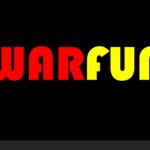Soldier humour & agency
Are soldiers funny? Usually, the military is portrayed as a disciplinary or total institution. Accordingly, military life does not appear to be quite funny: soldiers relinquish civil liberties and accept the possibility of injury and death, hierarchy orders relations top-down, soldiers learn to control their body through drill exercises. Thus, smiling, joking, laughing contradict the common preconceptions of soldiering. However, humour forms an integral part of military culture. Just like in other social groups and organizations, humour facilitates "incorporat[ing] and creat[ing] a shared universe of meaning" (Ben-Ari and Sion 2005, 669). The presentation explored how soldiers claim and exert agency through humour by looking at three humour practices: 1) identifying with nicknames that convey individual qualities, habits or achievements; 2) expressing criticism and dissatisfaction in the 'humorous mode' that would be ineffable in the 'serious mode' (Mulkay 1988); 3) acting out creativity in funny artistic products (murals, patches, badges, t-shirts, ...). The presentation arrived at the conclusion that humour provides a form of agency that ultimately stabilizes the military institution.




